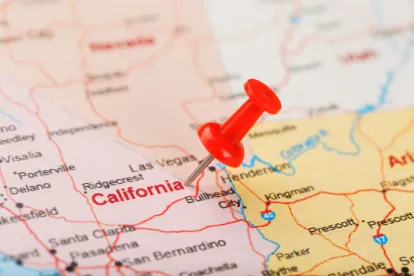In a last minute whirlwind of activity by California’s Legislature, a significant number of employment-related bills have now made their way to Governor Newsom’s desk and await their fate. Below are highlights of some of the bills that may affect California employers, should Governor Newsom sign them into law.
SB 1162: Pay Data Reporting and Disclosures
SB 1162 would expand the data that private employers with at least 100 employees must report to the California’s Department of Fair Employment and Housing. This expanded data would include the median and mean hourly rate for each combination of race, ethnicity and sex within each job category. SB 1162 would also require employers that have 100 or more employees hired through labor contractors to submit a separate pay data report for those employees. The bill would permit a court to impose civil penalties upon an employer for failing to file the required report.
Among other requirements, SB 1162 would also require employers, upon request, to provide employees the pay scale for the position that the employee currently holds. Employers with 15 or more employees would also be required to include the pay scale for a position in any job posting. In addition, the bill would require employers to maintain records of job title and wage rate history for each employee for a certain time period.
AB 257: Fast Food Accountability and Standards Recovery Act**
AB 257 would establish a 10-member Fast Food Council within the Department of Industrial Relations whose purpose would be to determine certain standards for the fast food industry, including minimum wage standards, working hours, and other working conditions related to health, safety, and welfare. To this end, the Fast Food Council would be empowered to issue, amend, and repeal rules and regulations governing the fast food industry. As an example of one such power, the Council would be able to increase the minimum wage for fast food workers up to $22 per hour as of January 1, 2023, and each year thereafter, the rate may be increased by the lesser of 3.5% or the increase in the Consumer Price Index. AB 257 would also allow any county or city with 200,000 or more residents to form a local fast food council.
AB 257 would also impose new standards for discrimination and retaliation of fast food workers. Importantly, it would create a rebuttable presumption of unlawful discrimination if a fast food restaurant operator terminates or takes other adverse action against an employee within 90 days of the employer learning that the employee filed a complaint, or refused to work because the employee has reasonable cause to believe that the restaurant would violate worker or public health and safety laws.
** Update: On September 5, 2022, Governor Newsom signed AB 257 into law.
AB 1041: Expansion of California Family Rights Act
AB 1041 would expand who an employee may take leave to care for under the California Family Rights Act (“CFRA”) to include a “designated person.” A “designated person” would be any individual related by blood or whose association with the employee is equivalent to a family relationship. The employee would be able to identify the “designated person” at the time the employee requests the leave and the employer can limit the employee to one “designated person” per 12-month period. AB 1041 would also expand the term “family member” under Labor Code Section 245.5, which governs paid sick days, to include “designated person.”
AB 1949: Bereavement Leave
AB 1949 also seeks to amend the CFRA. Under AB 1949, an employer would be prohibited from refusing an eligible employee’s request to take up to five days of bereavement leave in the event of a death of a family member. AB 1949 would require the leave be taken within three months of the date of death, and would require leave be taken pursuant to any existing bereavement leave policy of the employer. However, if the employer does not have a policy in place, AB 1949 would authorize an employee to use leave balances (i.e., accrued and available paid sick leave) or otherwise take unpaid bereavement leave.
SB 1044: Prohibition on Adverse Action in Event of Emergency Conditions
SB 1044 would prohibit an employer, in the event of an “emergency condition,” from taking or threatening to take an adverse action against an employee for refusing to report to or leaving the workplace because the employee has a reasonable belief that the workplace is unsafe. Where feasible, the employee must notify the employer of the emergency condition prior to the employee leaving or refusing to report to work. SB 1044 would also prohibit an employer, in the event of an emergency condition, from preventing an employee from accessing their mobile device to seek emergency assistance, assessing the safety of the situation, or communicating with a person to confirm their safety.
An “emergency condition” is defined as either: (1) conditions of disaster or extreme peril to the safety of persons or property at the workplace caused by natural forces or a criminal act; or (2) an order to evacuate a workplace, a worker’s home, or the school of a worker’s child due to natural disaster or a criminal act.
AB 2188: Preventing Discrimination on the Basis of Cannabis Use
AB 2188 seeks to amend the FEHA to make it unlawful for an employer to discriminate against a person in hiring, termination, or other term or condition of employment, on the basis of the person’s cannabis use outside of the workplace, except for preemployment drug screening or employer-mandated drug tests. However, AB 2188 has a carve-out for certain applicants and employees, including those in the building and construction trades, and those in positions which require federal background investigations.
AB 1751: Worker’s Compensation and COVID-19
Existing workers’ compensation laws include certain COVID-19 protections for employees. For example, under specific circumstances, an employee’s illness or death related to COVID-19 is a qualifying “injury,” and there is a disputable presumption that the injury arose out of and in the course of employment. Other workers’ compensation laws govern the availability of short term disability benefits or leaves of absences in the event an employee contracts COVID-19. However, many of the COVID-19 protections in workers’ compensation laws are set to expire on January 1, 2023.
AB 1751 would expand select COVID-19 workers’ compensation provisions until January 1, 2024, and would extend to certain state employees not previously covered.
AB 152: COVID-19 Supplemental Paid Sick Leave Relief
AB 152 would establish a grant program within the Governor’s Office of Business and Economic Development to assist qualified small businesses and non-profits which have incurred costs for COVID-19 supplemental paid sick leave for its employees.
SB 1262: Additional Indexes for Background Checks
SB 1262 would require that public records of defendants in criminal cases be searchable and capable of filtering based on the defendant’s driver’s license number or date of birth. This may result in background checks becoming less difficult to perform.
AB 2183: Agricultural Labor Union Elections
In addition to the polling place election process now in place to designate a collective bargaining representative, AB 2183 would allow a labor organization to be certified as the exclusive bargaining representative of a bargaining unit through a labor peace election or a non-labor peace election. A labor peace election would be a mail ballot election. A non-labor peace election would establish a process to submit a petition with proof of majority support.
AB 1601: Call Center Protections
Under existing law, employers are prohibited from ordering a mass layoff, relocation, or termination without satisfying written notice requirements to certain parties and entities, including the employees, the EDD, and specified local officials. AB 1601 would expand these protections to call center employees by prohibiting a call center employer from ordering a relocation of its call center (for example, by moving it out of the country) without satisfying the foregoing notice requirements.
AB 1601 would further require the EDD to publish a list of call center employers who have given notice, and provide workforce services to the employer and the call center employees who are laid off as a result of the relocation of the call center. If a call center employer fails to provide notice, AB 1601 would render the employer ineligible for an award or renewal of state grants or state-guaranteed loans for five years, among other remedies.
SB 1334: Meal and Rest Periods for Public Sector Hospital Employees
SB 1334 would entitle employees who provide or support direct patient care in a hospital or public health setting directly employed by public sector employers to meal and rest period protections prescribed by California law.
AB 2448: Recognition for Businesses Free From Discrimination and Harassment
AB 2448 would create a pilot program within the FEHA to recognize businesses that create environments free from discrimination and harassment (i.e., for its customers). AB 2448 tasks FEHA’s enforcement body with developing criteria to qualify businesses for recognition, including demonstrating compliance with the Unruh Civil Rights Act. All qualifying businesses would receive a certificate and be published to an internet database maintained by the department which lists businesses that received the certificate.
AB 2777: Sexual Assault Statute of Limitations
AB 2777 would expand the time for commencement of a civil action for recovery of damages suffered as a result of sexual assault. AB 2777 would revive certain claims which would have otherwise been barred because the statute of limitations had expired.




 />i
/>i
